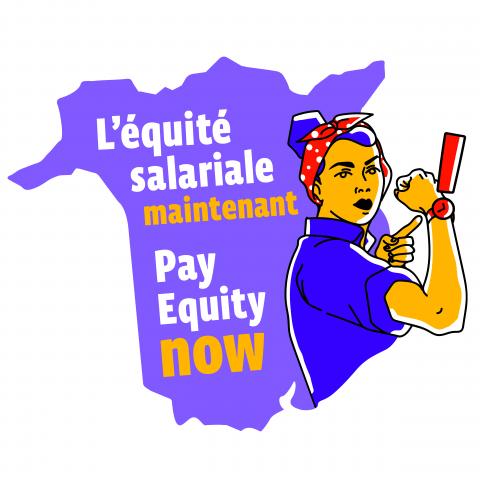Pay Equity Legislation for the Private Sector

Why Pay Equity for the Private Sector?
Approximately 65% of women in New Brunswick work in the private sector. The majority of them, as well as a small proportion of men, work in jobs predominantly or traditionally held by women. These jobs contribute to the smooth functioning of our society and our economy. However, for historical reasons, they are often undervalued and underpaid, depriving women - and their families - of incomes that would improve their options.
Pay equity is fundamentally a matter of justice.
Currently, the Pay Equity Act (2009) applies to the entire public service sector and Crown Corporations in New Brunswick. However, the New Brunswick Act does not apply to the private sector, unlike the laws in Ontario (1987), Quebec (1996), and the federal government (2018).
New Brunswick can and must act as well.
Why a Law?
Voluntary measures are not enough for the private sector. The New Brunswick Wage Gap Action Plan (2005-2010) relied on voluntary measures, however, few employers completed job evaluations to ensure pay equity in their workplaces. Even with support for job evaluations, it is clear that employers rarely introduce these measures until the force and clear parameters of a law are in place.
A Pay Equity Law for the Private Sector
A law for the private sector would ensure that the entire labour force of New Brunswick would benefit from pay equity rights. This law should be based on the Pay Equity Act (2009), and would improve it. The primary elements included would be:
- Proactivity: employers must show that they are meeting the requirements of the law.
- Wide Application: the law should apply to all private sector employers, including workplaces without male comparators.
- Job Evaluations: job evaluations should be based on four factors: skill, responsibility, effort, and working conditions.
- Independent Overseer: an independent organization should be responsible for the implementation and monitoring of the law as well as maintenance of pay equity by offering tools, training, and information to employers and employees.
Support for this law is growing across all spheres of New Brunswick society: the municipal, community, union, university, and private sectors.
A law will ensure the respect of a basic human right. It will benefit everyone in jobs that are predominantly or traditionally held by women, including radicalized and immigrant women who are disproportionately represented in those jobs. It will bring economic benefits to employers who will improve their compensation systems as well as their ability to recruit and retain staff. Equitable wages will help to maximize women's participation in the labour market.